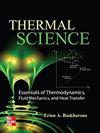时间分数汉堡型方程的He-Laplace方法
IF 1.1
4区 工程技术
Q4 THERMODYNAMICS
引用次数: 3
摘要
时间分数汉堡型方程与He?s的分数阶导数。它是一种耦合拉普拉斯变换和HPM的数值方法。给出了不同分数阶初值问题的近似解,无需进行离散化处理和复杂的计算。数值结果验证了该方法的有效性。本文章由计算机程序翻译,如有差异,请以英文原文为准。
He-Laplace method for time fractional burgers-type equations
The time fractional Burgers-type equations with He?s fractional derivative by He-Laplace method. It is a numerical approach coupled the Laplace transformation and HPM. The approximations to the initial value problem with different fractional orders are given without any discretization and complicated computation. Numerical results are provided to confirm its efficiency.
求助全文
通过发布文献求助,成功后即可免费获取论文全文。
去求助
来源期刊

Thermal Science
工程技术-热力学
CiteScore
2.70
自引率
29.40%
发文量
399
审稿时长
5 months
期刊介绍:
The main aims of Thermal Science
to publish papers giving results of the fundamental and applied research in different, but closely connected fields:
fluid mechanics (mainly turbulent flows), heat transfer, mass transfer, combustion and chemical processes
in single, and specifically in multi-phase and multi-component flows
in high-temperature chemically reacting flows
processes present in thermal engineering, energy generating or consuming equipment, process and chemical engineering equipment and devices, ecological engineering,
The important characteristic of the journal is the orientation to the fundamental results of the investigations of different physical and chemical processes, always jointly present in real conditions, and their mutual influence. To publish papers written by experts from different fields: mechanical engineering, chemical engineering, fluid dynamics, thermodynamics and related fields. To inform international scientific community about the recent, and most prominent fundamental results achieved in the South-East European region, and particularly in Serbia, and - vice versa - to inform the scientific community from South-East European Region about recent fundamental and applied scientific achievements in developed countries, serving as a basis for technology development. To achieve international standards of the published papers, by the engagement of experts from different countries in the International Advisory board.
 求助内容:
求助内容: 应助结果提醒方式:
应助结果提醒方式:


